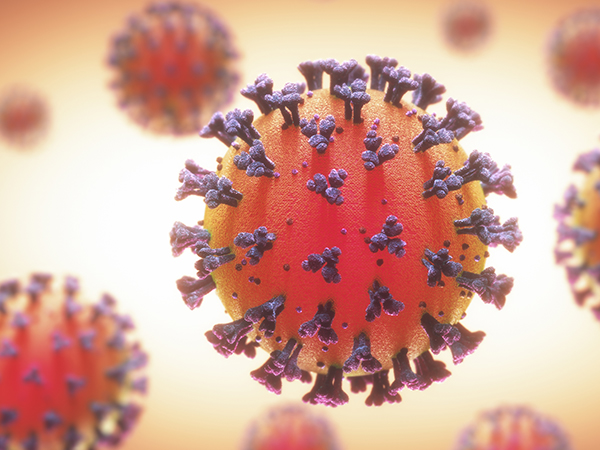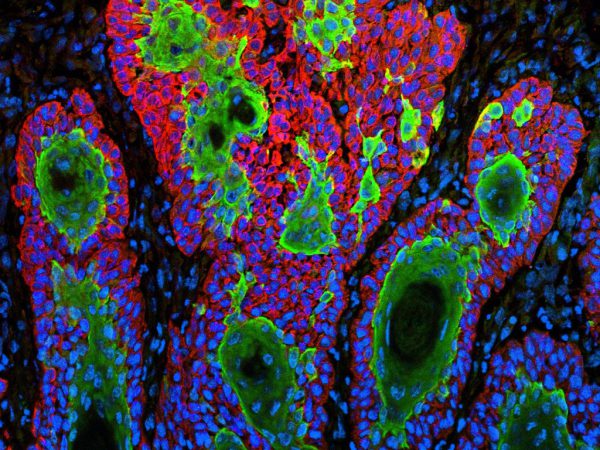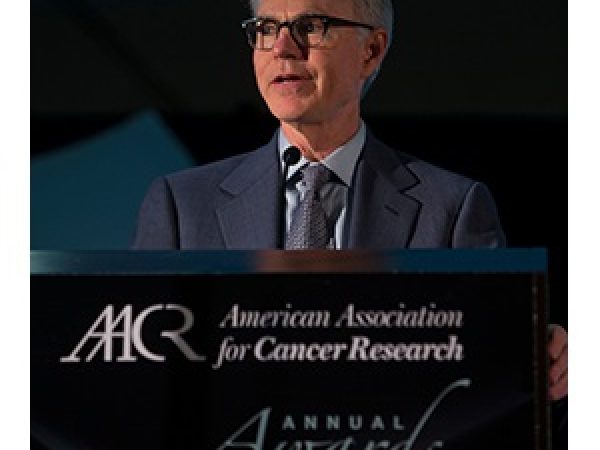AACR Virtual Meeting I & II: Platforms for COVID-19 and Cancer Discussions
The COVID-19 pandemic remains at the center of health and science news as cases of the disease continue to rise in the United States and worldwide. In recent days, global cases of COVID-19 exceeded 10 million, and have resulted in nearly 500,000 deaths. Cases in the United States have surpassed all other countries and have topped 2.5 million, with more than 125,000 deaths as a result.
In this unprecedented time, the cancer research community has faced unique challenges: Scientific laboratories have been forced to close, enrollment in cancer clinical trials has dropped, and research suggests that patients with cancer face worse outcomes from COVID-19 compared with the general population. Fortunately, research about COVID-19 and the SARS-CoV-2 virus is being carried out at an extraordinary pace, with many cancer researchers lending their expertise to address this immediate challenge.

The AACR Annual Meeting 2020, originally scheduled as an in-person gathering in San Diego, was adapted into two virtual meetings in light of the COVID-19 pandemic. Both meetings provided a venue for researchers to discuss the global perspective of the pandemic, how COVID-19 disproportionately affects minority populations, and recent research in the COVID-19 field.
A global perspective of COVID-19 in patients with cancer
As covered extensively in this previous blog post, during the AACR Virtual Annual Meeting I, an international panel of experts discussed the outcomes and characteristics of patients with cancer who contracted COVID-19. Perspectives from China, Europe, and the United States were highlighted, and a pair of studies in the AACR journal Cancer Discovery, published during the week of the meeting, found that patients with cancer in Hubei Province, China, and New York City had increased odds of death after contracting COVID-19 compared with the general population.
Clinical trials and RWE in the COVID-19 era
The first day of the AACR Virtual Meeting II included an educational session that focused on guidance for clinical trial conduct and considerations for real-world evidence (RWE) during the COVID-19 pandemic. The lineup of speakers for this session was comprised of members of the Food and Drug Administration (FDA).
Presentations included a discussion of the FDA’s recent guidance on the conduct of clinical trials of medical products during the COVID-19 era, along with information regarding the COVID-19 Evidence Accelerator, a collaborative project which leverages RWE to shape the COVID-19 response. Session panelist Paul Kluetz, MD, noted that the COVID-19 pandemic has resulted in deploying aspects of “decentralized trials,” or trials that utilize digital health technology and other tools that bring trial assessments to where patients live. Additionally, the current crisis has led to the exploration of RWE to facilitate the rapid expansion of knowledge about the natural history of a disease and its treatment. “We cannot lose this opportunity to learn and advance our knowledge of the strengths and limitations of decentralized trials and real-world data to move our cancer research enterprise to a more efficient and more patient-friendly model,” he said.
Health inequities and disparities during the COVID-19 pandemic
The second day of the AACR Virtual Meeting II featured a special session hosted by the AACR contingency group Minorities in Cancer Research (MICR). Talks in this session, which were covered in detail by Cancer Today, highlighted how COVID-19 has disproportionately affected minority populations, especially in Black and Latino communities. Panelists cited many potential reasons for higher rates of COVID-19 cases and deaths among minority populations. For example, research has shown that Black and Hispanic workers are less likely to have the ability to telework. These populations also hold the highest rates of service jobs in the United States, and this employment often requires interacting with the public. Additionally, African Americans and Hispanics are more likely to be uninsured and live in multifamily or multigenerational households compared with whites, all of which put them at a disadvantage when dealing with the COVID-19 crisis, the panelists noted.
COVID-19 and cancer research
The third and final day of the AACR Virtual Annual Meeting II included a special session on COVID-19 and cancer research. Talks in this session were delivered by cancer researchers who have shifted their focus to study COVID-19, and presentations centered largely on immune cell responses to the disease. “These are true stars of research who are helping us all by focusing on COVID-19,” said AACR President Antoni Ribas, MD, PhD, FAACR, who chaired this session.
Francis Collins, MD, PhD, the director of the National Institutes of Health (NIH), opened up the session with a special address, where he highlighted COVID-19 NIH initiatives such as ACTIV (Accelerating COVID-19 Therapeutic Interventions and Vaccines), a public-private partnership aiming to develop a coordinated research strategy for the development of COVID-19 treatments and vaccines; RADx (Rapid Acceleration of Diagnostics), which is focusing on ways to speed innovation in the development, commercialization, and implementation of technologies for COVID-19 testing; and NCCAPS (NCI COVID-19 in Cancer Patients Study), a natural history study of COVID-19 in 2,000 patients with cancer.
Looking ahead
The AACR is hosting a virtual meeting about COVID-19 and Cancer from July 20-22. This special conference, chaired by AACR President-Elect David A. Tuveson, MD, PhD, FAACR, will focus on emerging data in basic, clinical, and epidemiological research related to COVID-19 and cancer. You can register for this upcoming meeting here.



